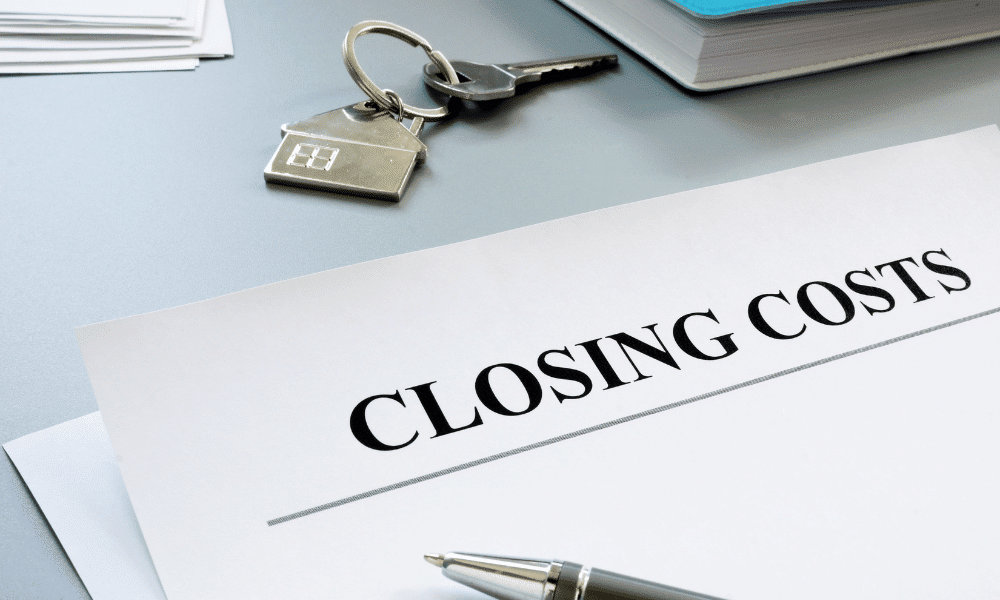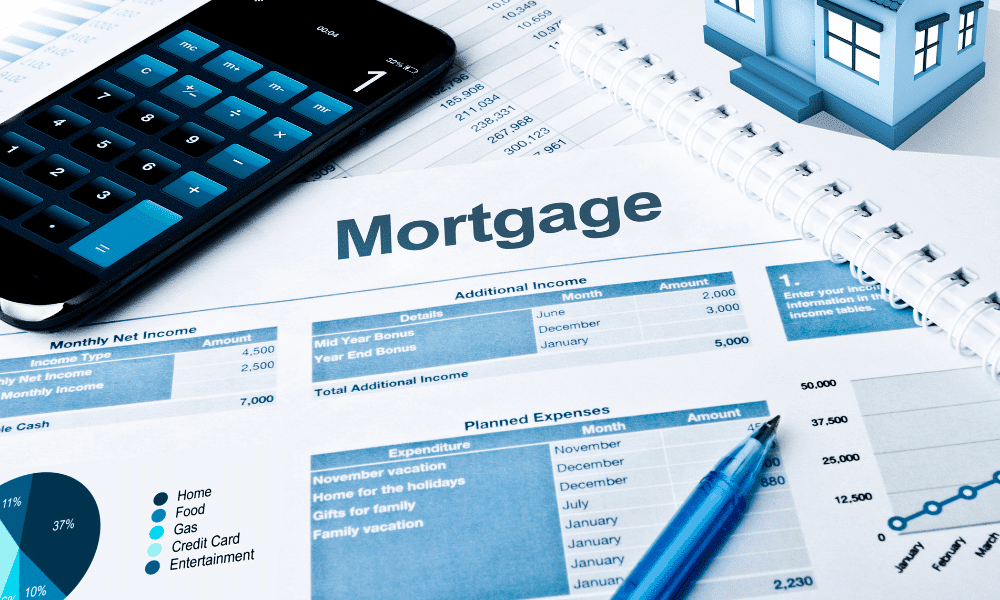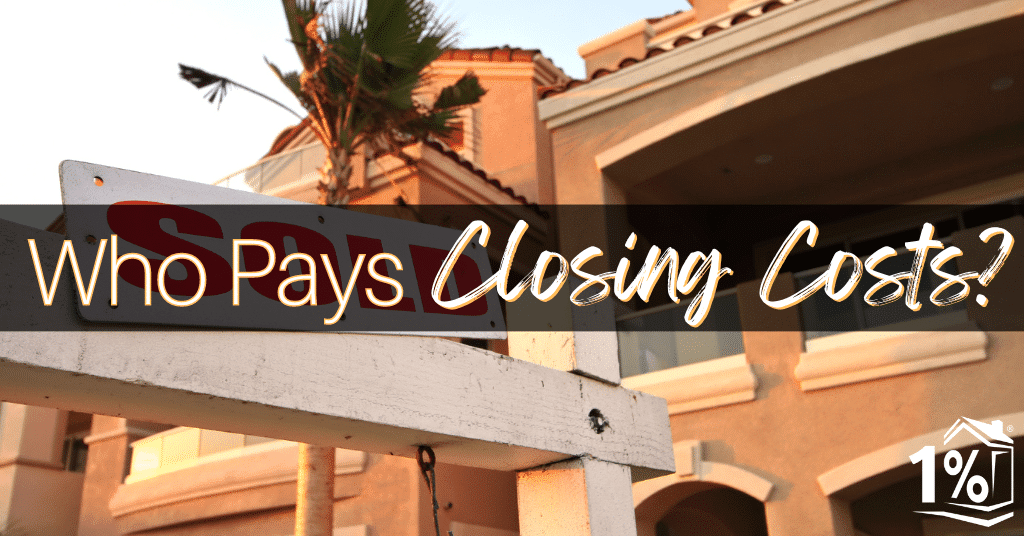When purchasing or selling a home, the focus typically centers around upfront costs. For buyers it’s down payment and moving expenses. The seller’s concerns involve repairs and preparing the house for showings. However, there are additional expenses to consider—these are known as closing costs.
So, who is responsible for covering these closing costs? In brief, both the seller and the buyer have obligations, but the fees and amounts they bear vary.
If you have previous experience with real estate transactions, you may already be acquainted with this. However, for first-time buyers, it can be somewhat perplexing.
That’s why we’ll explore closing costs in greater detail. We’ll also explain who pays for what and address any other questions you may have.

What are closing costs?
Closing costs include the fees required to finalize a home sale. The exact charges vary based on the property’s type and location.
Now, let’s delve into the common closing costs associated with any real estate transaction and identify who pays them. We will also provide clarification on how they’re paid.
The buyer costs
When investing in a home, buyers typically bear the responsibility for various costs associated with obtaining a home loan. It’s important to note that these closing costs are usually paid directly by the buyers themselves, out of pocket.
Here are some common closing costs that buyers may encounter:
- Attorney costs: Real estate lawyers review contracts, titles, and assist in drafting closing documents. They generally charge an hourly rate, although certain tasks may have a fixed fee.
- Home inspection fee: It is advisable for buyers to have a home inspection to evaluate the property’s condition. This fee is typically paid at the time of closing.
- Appraisal fee: When securing a mortgage, the lender may require an appraisal to estimate the home’s value.
- Underwriting/credit reporting fees: The lender may impose fees for conducting a credit check and performing other underwriting tasks.
- Prepaid interest: This covers the interest accrued between the closing date and the buyer’s first mortgage payment.
- Homeowners insurance: Lenders may require buyers to obtain homeowners insurance, and the first premium payment is usually due at closing.
- Title search fee and insurance: Title insurance safeguards against future claims or issues related to the property’s title. Lender’s title insurance is generally mandatory, while buyers have the option to choose owner’s title insurance for additional protection.
The seller costs
When it comes to closing costs, sellers typically assume responsibility for the following expenses. Unlike the buyer’s out-of-pocket costs, these expenses are usually deducted from the home’s purchase price:
- Realtor commissions: Both the buyer’s and seller’s agents receive compensation for their involvement in the home sale. Sellers typically pay a percentage of the final purchase price to cover these commissions.
- Title fees: These costs are associated with the transfer of the property’s title from the seller to the buyer.
- Homeowners association fees: If the home is in a community with an HOA, any fees must be settled at closing.
- Property taxes: If there are any unpaid property taxes, the seller is responsible for bringing them up to date.
While the buyer’s list of fees may seem longer, they generally incur lower overall closing costs.
However, it’s important to note that these closing costs do not include the down payment, which is a separate expense.
How much are closing costs?
Closing costs can vary, and while there is no fixed amount, there is a general range for both buyers and sellers. Typically, sellers pay around 6% to 10% of the home’s purchase price at closing. Buyers, however, usually pay between 2% and 5% of the sale price.
For example, if you were purchasing a home for $250,000, your closing costs would likely range from $5,000 to $12,500. As the seller of the same property, you would probably face costs ranging from $15,000 to $25,000.
Unfortunately, buyers may not know the exact costs until a few days before closing. They should receive a closing or settlement statement approximately three business days prior to the closing date. This statement provides a detailed breakdown of all the costs. It gives buyers an idea of the total amount they’ll need to pay at the closing table.
Sellers, on the other hand, often have more advanced knowledge. Experienced agents will provide them with a seller net sheet, which itemizes the closing costs deducted from their gross profit. This allows sellers to have a fairly accurate estimate of the net proceeds they’ll receive from the sale.

Loan types and the effect on buyer costs
As mentioned earlier, buyers typically pay approximately 2% to 5% of a home’s purchase price in closing costs. However, this estimation is based on a conventional loan. The type of mortgage chosen by the buyer can significantly impact the closing costs.
When buyers make a small down payment on their new home, lenders may impose additional fees. These fees serve as insurance against default or delinquency and are usually due at closing.
Government-backed loans with low down payment requirements, such as VA and USDA loans, have one-time funding or upfront fees. FHA loans require borrowers to pay a mortgage insurance premium (MIP). This is 1.75% of the total loan amount. It’s paid at closing, in addition to annual premiums in the future.
Buyers using a private lender with less than 20% down are required to pay private mortgage insurance (PMI). Some lenders may ask for an upfront PMI payment at closing. In this case, the entire year’s premium is paid as a lump sum.
Tips for the buyer to save
Closing costs can accumulate rapidly, but there are strategies to reduce the overall amount buyers have to pay. Consider the following tips for saving on closing costs:
- Negotiate seller concessions: Buyers can ask sellers to pay some or all of the closing costs. This is usually instead of requesting home repairs or lowering the asking price. In certain states, sellers are responsible for providing title insurance policies for new owners.
- Explore lender credits: Some lenders may be willing to pay a portion or all of the buyer’s closing costs. In return, they might offer a slightly higher interest rate on the loan. While this may result in increased costs over time, it can significantly reduce upfront expenses.
- Research closing cost assistance programs: There are programs available specifically designed for low-to-moderate income or first-time homebuyers. These programs provide grants or loans to help cover closing costs. It’s worth exploring such options to potentially alleviate the financial burden.
By implementing these strategies, buyers can potentially minimize their closing costs and make the home purchasing process more affordable.
Summing it up
Regardless of whether you’re the buyer or seller, it’s crucial to anticipate and budget for closing costs. Both parties typically bear a share of these expenses, although the specific breakdown can be negotiated.
Buyers should also take into account the type of loan they select. It can have a pretty significant impact on the closing costs they’ll face.
Understanding closing costs and implementing strategic approaches can potentially lead to cost savings.
If you’re selling your home or looking to buy in Orange Beach, reach out to 1 Percent Lists The Coast.
Our dedicated team of real estate professionals is committed to guiding you throughout the entire process.
Contact us today and let’s work together to transform your real estate aspirations into reality!

